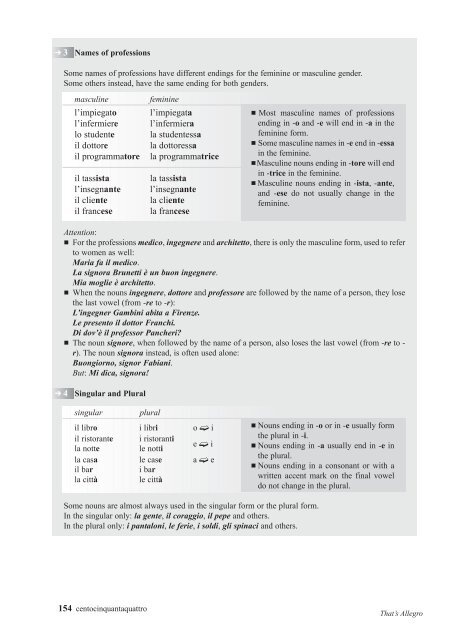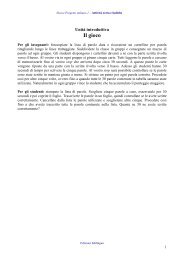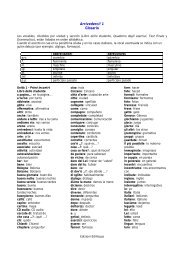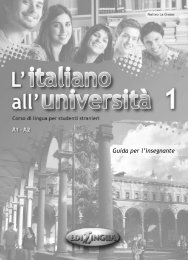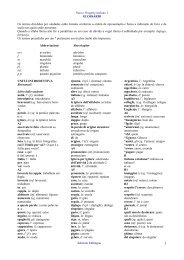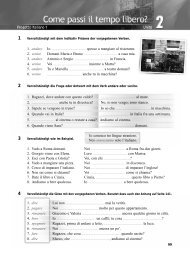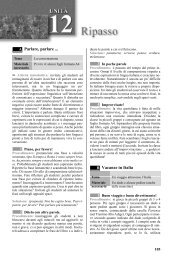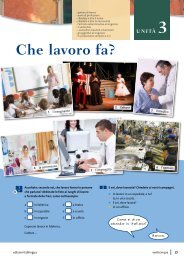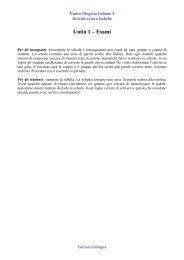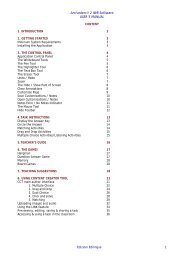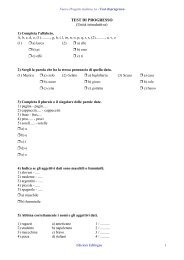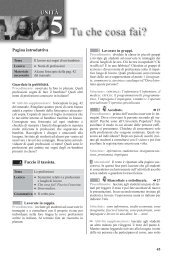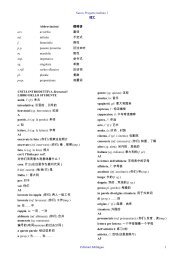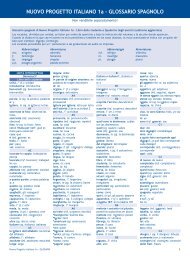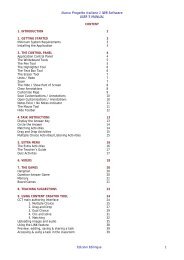You also want an ePaper? Increase the reach of your titles
YUMPU automatically turns print PDFs into web optimized ePapers that Google loves.
➔ 3<br />
Names of professions<br />
Some names of professions have different endings for the feminine or masculine gender.<br />
Some others instead, have the same ending for both genders.<br />
masculine<br />
l’impiegato<br />
l’infermiere<br />
lo studente<br />
il dottore<br />
il programmatore<br />
il tassista<br />
l’insegnante<br />
il cliente<br />
il francese<br />
feminine<br />
l’impiegata<br />
l’infermiera<br />
la studentessa<br />
la dottoressa<br />
la programmatrice<br />
la tassista<br />
l’insegnante<br />
la cliente<br />
la francese<br />
■ Most masculine names of professions<br />
ending in -o and -e will end in -a in the<br />
feminine form.<br />
■ Some masculine names in -e end in -essa<br />
in the feminine.<br />
■ Masculine nouns ending in -tore will end<br />
in -trice in the feminine.<br />
■ Masculine nouns ending in -ista, -ante,<br />
and -ese do not usually change in the<br />
feminine.<br />
Attention:<br />
■ For the professions medico, ingegnere and architetto, there is only the masculine form, used to refer<br />
to women as well:<br />
Maria fa il medico.<br />
La signora Brunetti è un buon ingegnere.<br />
Mia moglie è architetto.<br />
■ When the nouns ingegnere, dottore and professore are followed by the name of a person, they lose<br />
the last vowel (from -re to -r):<br />
L’ingegner Gambini abita a Firenze.<br />
Le presento il dottor Franchi.<br />
Di dov’è il professor Pancheri?<br />
■ The noun signore, when followed by the name of a person, also loses the last vowel (from -re to -<br />
r). The noun signora instead, is often used alone:<br />
Buongiorno, signor Fabiani.<br />
But: Mi dica, signora!<br />
➔ 4<br />
Singular and Plural<br />
singular plural<br />
il libro i libri o Î i<br />
il ristorante i ristoranti<br />
la notte le notti<br />
e Î i<br />
la casa le case a Î e<br />
il bar<br />
i bar<br />
la città le città<br />
■ Nouns ending in -o or in -e usually form<br />
the plural in -i.<br />
■ Nouns ending in -a usually end in -e in<br />
the plural.<br />
■ Nouns ending in a consonant or with a<br />
written accent mark on the final vowel<br />
do not change in the plural.<br />
Some nouns are almost always used in the singular form or the plural form.<br />
In the singular only: la gente, il coraggio, il pepe and others.<br />
In the plural only: i pantaloni, le ferie, i soldi, gli spinaci and others.<br />
154 centocinquantaquattro<br />
That’s Allegro


